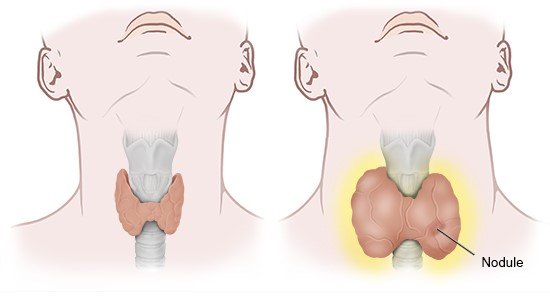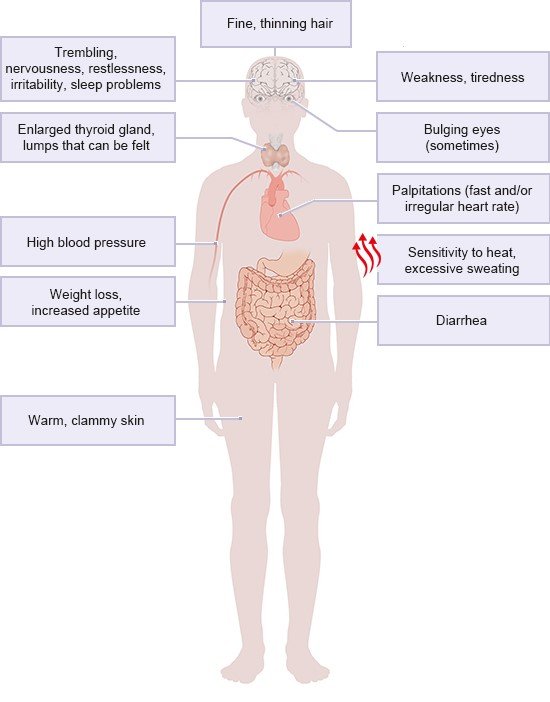Bartalena L, Kahaly GJ, Baldeschi L et al. The 2021 European Group on Graves' orbitopathy (EUGOGO) clinical practice guidelines for the medical management of Graves' orbitopathy. Eur J Endocrinol 2021; 185(4): G43-G67.
De Leo S, Lee SY, Braverman LE. Hyperthyroidism. Lancet 2016; 388(10047): 906-918.
Deutsche Gesellschaft für Nuklearmedizin (DGN). Radioiodtherapie bei benignen Schilddrüsenerkrankungen (Version 5). DGN-Handlungsempfehlung (S1 Leitlinie). AWMF-Registernr.: 031-003. 2015.
Jameson JL, Mandel SJ, Weetmann AP. Disorders of the Thyreoid Gland. In: D. L. Kaspers, S. L. Hauser, J. L. Jameson et al. (Ed). Harrison's Principles of Internal Medicine. McGraw-Hill Education; 2015.
Kahaly GJ, Bartalena L, Hegedüs L et al. 2018 European Thyroid Association Guideline for the Management of Graves’ Hyperthyroidism. Eur Thyroid J 2018; 7(4): 167-186.
National Institute for Health and Care Excellence (NICE). Thyroid disease: assessment and management (NICE Guidelines; Band NG145). 2019.
Ross DS, Burch HB, Cooper DS et al. 2016 American Thyroid Association Guidelines for Diagnosis and Management of Hyperthyroidism and Other Causes of Thyrotoxicosis. Thyroid 2016; 26(10): 1343-1421.
Viszeralchirurgie DGfA-u, (DGAV). S2k-Leitlinie Operative Behandlung benigner Schilddrüsenerkrankungen. 2021.
IQWiG health information is written with the aim of helping people understand the advantages and disadvantages of the main treatment options and health care services.
Because IQWiG is a German institute, some of the information provided here is specific to the German health care system. The suitability of any of the described options in an individual case can be determined by talking to a doctor. informedhealth.org can provide support for talks with doctors and other medical professionals, but cannot replace them. We do not offer individual consultations.
Our information is based on the results of good-quality studies. It is written by a team of health care professionals, scientists and editors, and reviewed by external experts. You can find a detailed description of how our health information is produced and updated in our methods.



